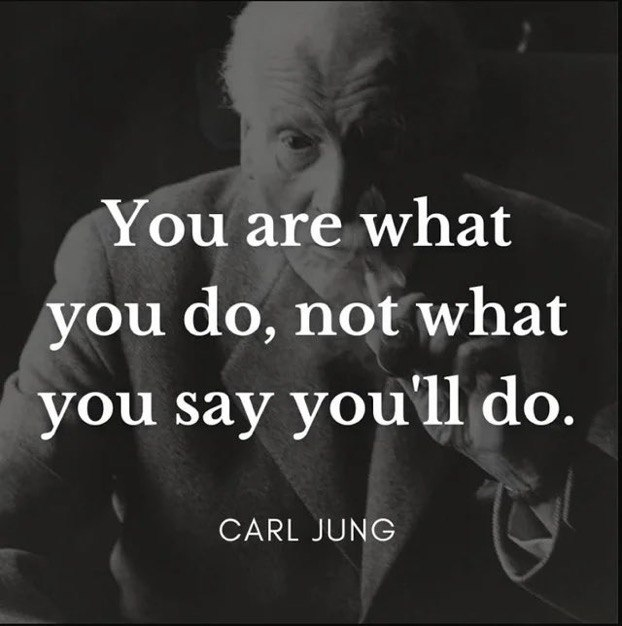When I saw that today, one of the holidays celebrated moving on, I wasn't sure to what to write about. It's not that I have no conflicts that still make me frown in reflection. Those things have come and gone so long ago, I don't need to over it.

To remain candid with you, my dear reader, let me open up. I don't like that my positivity is critiqued. I haven't forgotten how John and Tim from that Delaware insurance agency made me feel. They were regular asses.
"If you worked for me, I'd have fired you already!" Pah! Crumbs. I'm going to talk to my manager who had the call logged and said he'd give it a listen on Monday. That's not here nor there, though.
This post isn't to recall my first girlfriend, remember my falling out with former friends, or even dredge up my past. I am out of practice, but today is perfect for shadow work.
Shadow Work
Shadow work is the process of exploring your unconscious motivations and hidden emotions. It's also known as working with your "personal shadow".
How does shadow work work? I dove into this some time ago, so here's my short synopsis.
- You can practice noticing your inner shadow
- You can reflect on your childhood
- You can avoid judging your shadow
- You can meditate to identify your triggers
- You can keep a journal to record your shadow work
- You can express your shadow through art
- You can start an inner dialogue
Why would you or anyone do shadow work? To unpack past traumas. To identify limiting beliefs. To recognize unhealthy mindsets. Basically, to get over it, you could say your doing shadow work.
What is the shadow?
The shadow is the "dark side" of your personality. It includes negative emotions and impulses like rage, envy, greed, and selfishness.
I was not surprised to see this name associated. It was psychiatrist Carl Jung who introduced the concept of the shadow. My first exposure to Jung was a quote I found motivating:

You are what you do, not what you say you'll do.
If I inspire readers to overcome personal hurdles that'd be great. My ambitions aren't so noble. I really want to remove what hinders my progress and well-being. Whether it's clinging to outdated business practices or harboring unnecessary grudges, it's time we collectively move forward.
The internet reflects a lot of negativity, for example. Folks are hurting, even if I'm optimistic.
You might wonder, why does getting over past issues matter?
Holding onto past grievances stifles you. Your personal growth slows, and it directly impacts productivity and satisfaction. Letting go allows us to approach challenges with a fresh perspective and renewed energy.
Studies show that individuals who practice forgiveness and let go of negativity have better mental and physical health outcomes. The businesses that regularly update their practices and encourage open communication see higher employee engagement and customer satisfaction. I feel that way about my current gig, even if customers can be most disagreeable.
I've always believed in the power of positive reinforcement. You might say, I picked up from my parents, it's better than negative criticism. Whether in gaming with teammates or managing my calls from customers at work.
Criticizing someone harshly for a mistake does not encourage improvement but instead fosters resentment and fear of failure.
I've felt that way before. I share from experience. Something unexpected I found though, Dale Carnegie makes a similar point in his How to Win Friends and Influence People.
It's his first principle: Don't criticize, condemn or complain.
It was a quote by another, Carlyle, that caused me to reflect.
A great man shows his greatness by the way he treats little men.
I am not so great I could manage to remark on others', anyway. Positive reinforcement, on the other hand, builds confidence and promotes a culture of continuous improvement.
How to Implement Change:
- Identify What Needs to Be Overcome: Make a list of personal and professional hang-ups that are holding you back.
- Understand the Impact: Reflect on how these issues affect your daily life and your interactions with others.
- Develop a Plan: Set actionable steps to address these issues. This could involve seeking feedback, attending workshops, or simply practicing mindfulness and forgiveness.
- Seek Support: Don't go at it alone. Discuss your goals with friends, family, or colleagues and find accountability partners.
- Celebrate Progress: Recognize and celebrate improvements, no matter how small. This reinforces positive changes and motivates you to keep going.
As we observe National Get Over It Day, I encourage you to take a moment to reflect on what barriers you can begin to dismantle. That's big coming from me, but trust this.
Your time is limited. Don't waste it living someone else's life, Steve Jobs said at a commencement ceremony. I'd say it's a waste carrying baggage dumped on you by others.
Let me know what you think. Share your thoughts and experiences in the comments below.
Getting over it isn't about forgetting the past. It's about learning from it to move forward. Read more from me tomorrow as I celebrate Mario, packed lunches, and whine about Daylight Savings.
Congratulations @thatkidsblack! You have completed the following achievement on the Hive blockchain And have been rewarded with New badge(s)
You can view your badges on your board and compare yourself to others in the Ranking
If you no longer want to receive notifications, reply to this comment with the word
STOP